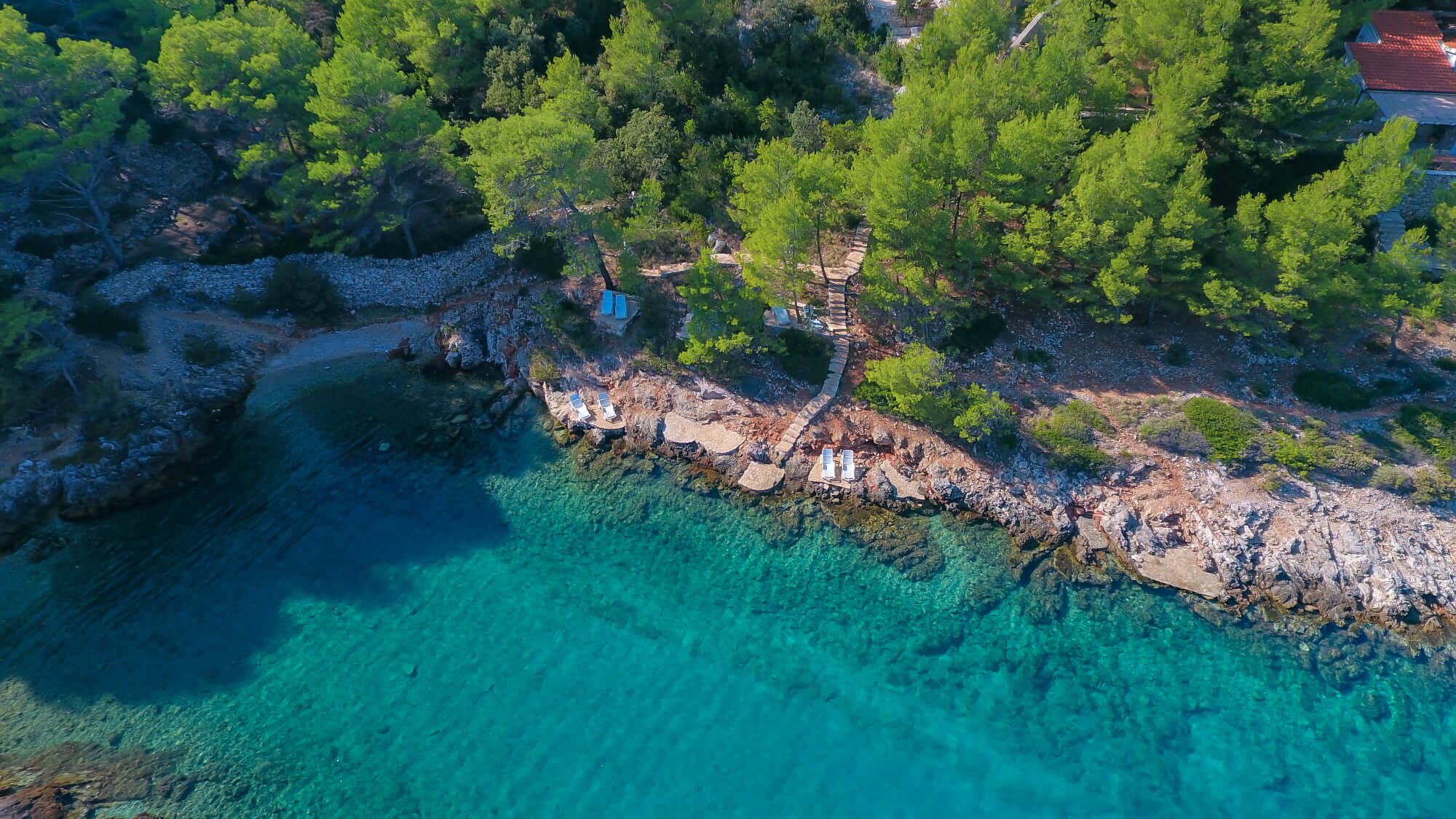
Nestled along the stunning Adriatic coast, Croatia is fast becoming a hotspot for investors looking to purchase seaside properties. With its pristine beaches, crystal-clear waters, and vibrant cultural heritage, the allure of owning a villa by the sea is undeniable. However, diving into the Croatian real estate market requires not just an appreciation for its scenic beauty but also a solid understanding of the fiscal responsibilities involved. This blog aims to demystify the tax implications of purchasing a seaside villa in Croatia, ensuring that potential buyers are well-informed and prepared.
When considering such a significant investment, it’s crucial to be aware of the various taxes that can impact the overall cost and long-term enjoyment of your property. From one-time charges during the purchase process to ongoing property taxes, understanding these financial obligations is key to making a sound investment. In the following sections, we will explore the main types of taxes involved in buying a property in Croatia, including real estate transfer taxes, value-added tax (VAT), and other related fees. Additionally, we’ll discuss tax benefits and exemptions that might be available, helping you to optimize your investment. By equipping yourself with this knowledge, you can navigate the complexities of the real estate market with confidence and ease.
Croatia’s real estate market has been witnessing significant growth, especially in the coastal areas where seaside villas are a major attraction for both domestic and international investors. The enduring appeal of Croatia’s Adriatic coast, with its idyllic beaches and picturesque towns, makes it a premier destination for those seeking a second home or a lucrative investment opportunity.
In recent years, the demand for seaside properties has surged, driven by Croatia’s stable economy, favorable climate, and its increasing popularity as a tourist destination. The market trends indicate a robust interest in high-quality villas that offer privacy, exclusive amenities, and direct access to the sea. These properties not only serve as perfect summer retreats but also hold great potential for rental income during the tourist season.
Investing in Croatian real estate, particularly in seaside villas, comes with its set of considerations. Buyers are drawn by the scenic views and the lifestyle promise, but they must also navigate the complexities of the real estate transaction process in Croatia. This includes understanding the local property laws, the tax implications, and the potential for appreciation in property values over time.
As we explore the types of taxes involved in purchasing property in Croatia, it’s important to note how these can influence investment decisions. The following section will delve into the specific taxes such as real estate transfer tax and VAT, outlining how they apply to property transactions in this region.

When buying a seaside villa in Croatia, several tax obligations come into play that are essential for every prospective buyer to understand. These taxes not only affect the initial cost of acquisition but may also influence the choice between different properties or even locations. Here, we’ll break down the primary taxes associated with the purchase of real estate in Croatia, helping you anticipate the financial aspects of your investment.
One of the primary costs when acquiring an existing property is the real estate transfer tax. In Croatia, this tax is levied on the transfer of property ownership and is generally payable by the buyer. The current rate is set at 3% of the property’s market value as determined by the tax authorities at the time of purchase. This tax is applicable to all types of real estate transactions unless exempted under specific conditions.
In contrast to the real estate transfer tax, VAT is applicable primarily to new buildings or those that have undergone significant reconstruction. This tax replaces the real estate transfer tax for new properties and is typically absorbed by the developer in their pricing but ultimately passed on to the buyer. The standard VAT rate in Croatia is 25%; however, reduced rates may apply to certain transactions. Understanding whether VAT or real estate transfer tax applies to your purchase is crucial, as it significantly affects the overall cost.
By comprehending these primary tax obligations, buyers can better prepare for the financial implications of their real estate investments in Croatia. The subsequent sections will delve into additional costs and fees, as well as possible tax benefits and exemptions, providing a comprehensive overview of what to expect when finalizing your seaside villa purchase.
When buying a seaside villa in Croatia, the purchase price is just the beginning. Several additional costs and fees can significantly impact the total investment required. It’s important for prospective buyers to understand and prepare for these expenses to avoid surprises during the purchasing process.Legal fees are necessary for ensuring that all aspects of the property transaction are legally sound. These fees cover services like verifying the property’s legal status, ensuring there are no encumbrances, and facilitating the transfer of ownership. The cost typically ranges from 1% to 3% of the property price, depending on the complexity of the transaction.
Notary fees are also involved in the buying process. In Croatia, notaries authenticate property documents to ensure they are legally binding. Their fees are regulated by law and are usually based on the property’s value, often costing a few hundred euros.Real estate agent fees should be considered as well, as agents facilitate the transaction and help negotiate terms. The standard commission is about 3% of the purchase price, plus VAT, usually borne by the buyer.
Surveyor’s fees may be necessary, especially for older properties or those where boundaries are unclear. Surveyors confirm property boundaries and assess the physical condition, helping to prevent future disputes or unexpected repair costs.There may also be miscellaneous costs such as translation fees for non-Croatian speakers, administrative fees for property registration, and costs associated with obtaining necessary permits, especially if renovations or construction are planned.Understanding these additional costs is crucial for any buyer considering a property investment in Croatia. Factoring these expenses into your budget will help ensure that you are fully prepared for the financial commitment involved in purchasing a seaside villa.
Understanding the tax benefits and exemptions available when purchasing real estate in Croatia can lead to significant savings and influence your buying decision. This section delves into the opportunities for reducing tax liabilities under certain conditions, providing essential insights for anyone considering investing in a Croatian seaside villa.
The real estate transfer tax is a considerable expense, generally set at 3% of the property’s market value. However, there are specific conditions under which buyers can be exempt from this tax:
While VAT is typically charged at 25% on new constructions, exemptions can apply, significantly lowering the upfront costs:
Beyond the direct tax exemptions, Croatia offers additional incentives that can benefit property buyers:
It is advisable to work with a local tax consultant or legal advisor who can guide through the application process for these tax benefits and ensure all conditions are met.
Understanding these tax benefits and exemptions is crucial for anyone looking to purchase a seaside villa in Croatia as it affects the total investment and potential returns. Knowledge of these fiscal advantages not only helps in making a well-informed buying decision but also in planning the financial aspects of property ownership more effectively.

After the initial purchase of a seaside villa in Croatia, ongoing property taxes are a critical financial consideration for all homeowners. Understanding these taxes will help you budget effectively and manage your property investment over the long term. This section explores the types of property taxes applicable in Croatia and provides guidance on how they are calculated.
Croatia imposes an annual property tax that varies depending on the location and type of property. For seaside villas, the tax rate can be influenced by factors such as the property’s size, its cadastral value, and its proximity to the sea. Generally, the property tax rate is quite low compared to other European countries, typically ranging from 1.5 to 3.5 per mille (0.15% to 0.35%) of the estimated property value per annum.
The tax is calculated based on the cadastral value, which is often lower than the market value. It’s important for property owners to check the cadastral registry to confirm their property’s official value and ensure it reflects current conditions, as discrepancies can lead to unexpected tax adjustments.
In addition to the national property tax, some municipalities may levy additional taxes or fees for local services, such as waste collection, street maintenance, and other community services. These fees are usually modest but can vary significantly from one locality to another, especially in tourist-heavy areas where local infrastructures are under more strain.
Croatia sometimes offers tax incentives for property improvements that enhance energy efficiency, sustainability, or cultural preservation. These incentives can take the form of tax credits or reduced property tax rates for a specified period. Property owners considering upgrades or renovations should inquire about such incentives as they can lead to substantial savings.
Property tax bills are typically issued annually, and payment deadlines can vary by municipality. Property owners should be diligent in understanding the payment schedule and comply with local tax laws to avoid penalties. For foreign investors, it is often recommended to engage with a local property management company or a tax advisor to handle these obligations.
Understanding and managing these long-term property taxes is essential for maintaining the financial viability of your seaside villa in Croatia. By anticipating these costs, you can ensure that your investment remains profitable and enjoyable for years to come.
Investing in a seaside villa in Croatia offers tremendous appeal, but it also involves complex financial and tax considerations that necessitate careful planning and professional advice. For any prospective buyer, understanding the full spectrum of these factors is crucial to ensure both profitability and compliance with local regulations.
Financial planning is vital in real estate investment, extending beyond the initial costs to include long-term financial commitments like maintenance, potential rental income, property depreciation, and appreciation. A thorough financial plan not only assesses the immediate affordability of the purchase but also projects future cash flows and evaluates the long-term investment potential.
Expert tax advice is equally important. Croatian tax laws can be intricate, particularly for those unfamiliar with the system. A tax professional with expertise in Croatian real estate can guide you through the tax landscape, helping to identify applicable taxes, potential exemptions, and optimal strategies for tax minimization. This advice is invaluable in ensuring that all fiscal obligations are met while taking advantage of any available tax benefits.
Hiring a local financial advisor who understands the real estate market can further enhance your investment decision. Such advisors can offer insights into local market trends, help navigate regulatory requirements, and provide access to essential networks that might include legal support, property management services, and more.
Additionally, utilizing financial tools and resources like online calculators and real estate investment software can aid in making informed decisions. These tools offer preliminary tax and mortgage estimates, cash flow projections, and detailed financial analyses, which are fundamental for assessing the viability of the investment.